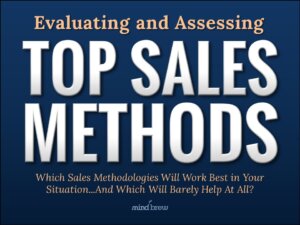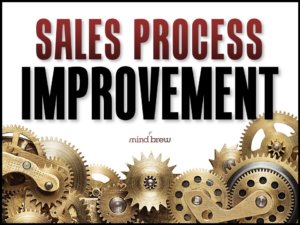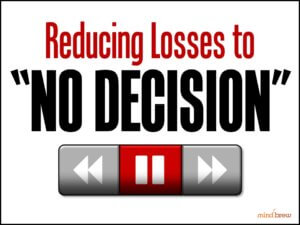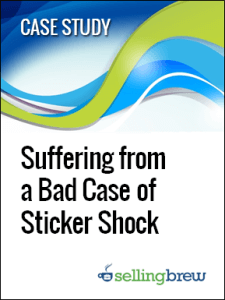There’s a perception in many sales operations that there’s relatively little difference between various sales methodologies.
This viewpoint suggests that regardless of the specific approach, the essence of selling remains the same, essentially boiling down to “selling is selling.” This belief is underpinned by the assumption that the core of sales revolves around relationship building and differentiation—that it’s about earning the trust and favor of buyers, while persuading them that your offerings are better than the alternatives. With this perspective, it then follows that the different sales methodologies we have to choose from are merely variations on that theme and not fundamentally different in any meaningful way.
However, a deeper dive into the subject reveals that sales methodologies can be categorized into two very distinct types, each designed to address a different kind of demand: explicit demand and latent demand.
Explicit Demand Sales Methodologies
Explicit demand is where buyers are aware of the problems and are actively seeking solutions. These buyers are already “in the market” for solutions and offerings like those your company offers. They have recognized a need or an issue and are in the process of exploring options and comparing offerings from various providers to find the one that best meets their needs and requirements.
The primary aim of sales methodologies geared toward explicit demand is differentiation. Since the buyer is actively comparing your solutions or offerings against others, the focus must be on clearly and credibly articulating why your offerings are superior. This involves highlighting unique features, demonstrating differential value, and communicating how your offerings address the buyer’s specific needs more effectively than the alternatives.
For an example of an explicit demand scenario, think about a distributor selling plumbing parts and supplies. As this is a mature category, buyers have been actively evaluating and purchasing these products for decades. Therefore, an appropriate sales methodology will focus on differentiating the distributor and its product offerings from all other distributors and offerings.
Latent Demand Sales Methodologies
Conversely, latent demand represents situations where buyers are not actively seeking solutions. They might be unaware of a problem, its implications, or the value of addressing it. These buyers are not yet “in the market” for your offerings because they may not recognize they have a need or understand the potential benefits of solving their issues.
Sales methodologies designed for latent demand aim to guide the buyer through a journey of recognition and realization. The objective is to help prospective buyers understand the problem, realize its impact, and acknowledge the value of finding a solution. Only after this realization can the discussion then shift towards why your offerings are the best fit. Here, the approach is about facilitating change, moving the buyer from unawareness or indifference to a position where they are ready to make an informed purchasing decision.
For an example of a latent demand scenario, think about the developer of a SaaS solution for automating a business function that has been accomplished manually for decades. As this is a new and completely different way of performing this function, buyers are not seeking a solution or comparing alternatives. They aren’t even aware that there’s a costly problem with performing this function manually. Therefore, an appropriate sales methodology will focus on education and facilitating change to help the prospect get into the market in the first place.
The Importance of Methodology-Demand Alignment
The critical takeaway for Sales Ops professionals is the importance of matching your sales methodology to the type of demand your team is attempting to address. Employing an explicit demand methodology where demand is latent can lead to a lot of frustration, extended sales cycles, and a high incidence of opportunities ending in “no decision.” Similarly, approaching an explicit demand market with a latent demand methodology can result in missed opportunities and competitive losses as your team fails to quickly and effectively differentiate your solution from all of the alternatives.
Understanding whether your target market operates under explicit or latent demand conditions is fundamental to selecting the most appropriate sales methodology for your particular situation. This alignment not only optimizes the internal sales process, but also enhances the buyer’s journey by ensuring that your approach actually resonates with prospect’s current state of organizational awareness and readiness to act.
In conclusion, the distinction between explicit and latent demand market orientations underscores the need to be more thoughtful and deliberate when choosing a sales methodology. After all, selling is not always about competitive differentiation. In certain situations, selling is about education and facilitating organizational change. Recognizing that sales methodologies are more different than you think is a crucial step toward building a more strategic, informed, and successful sales operation.













